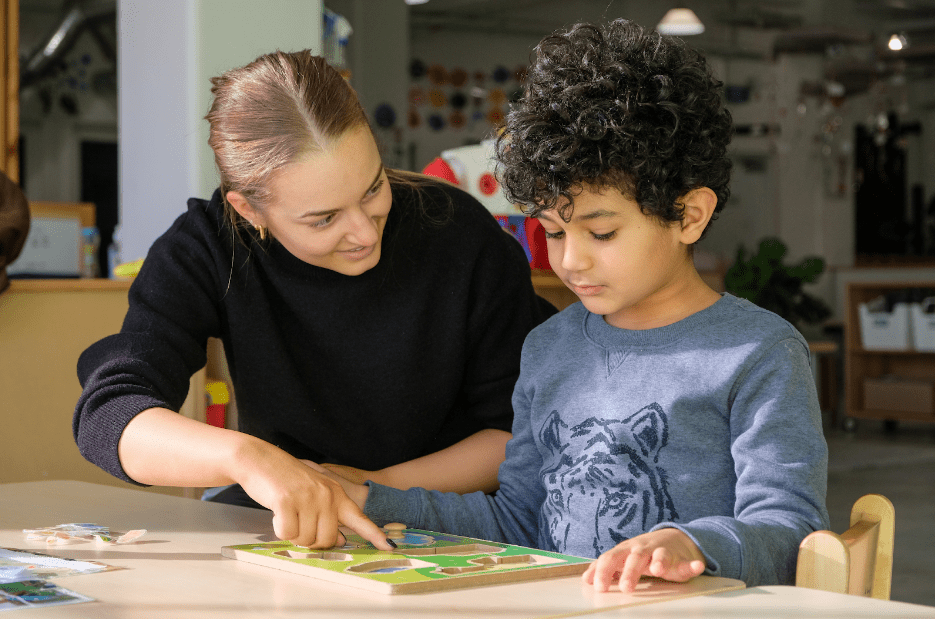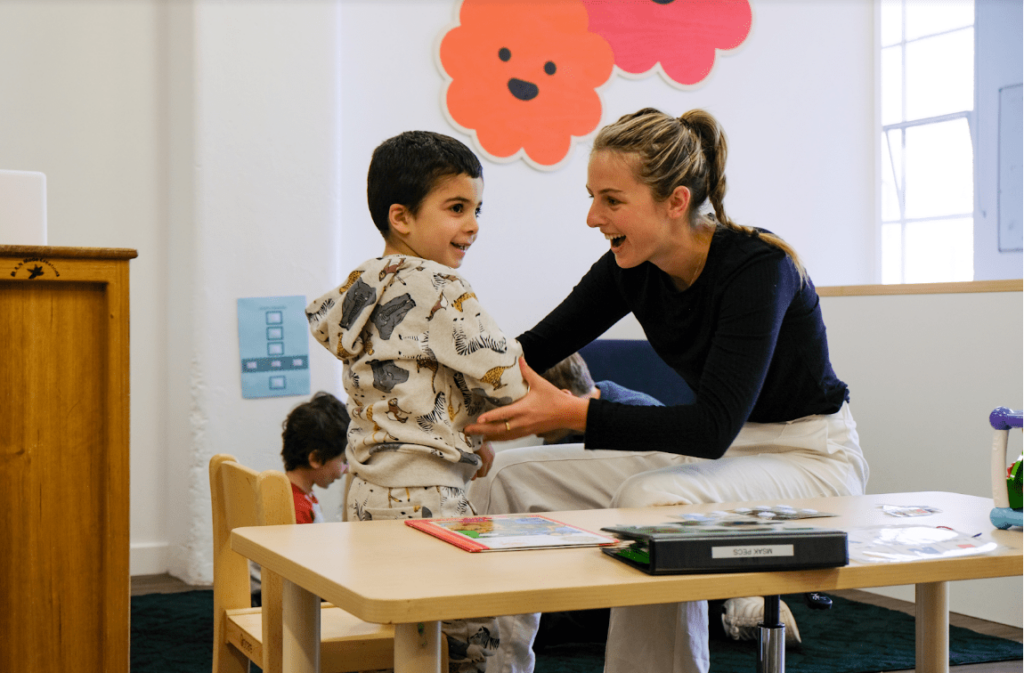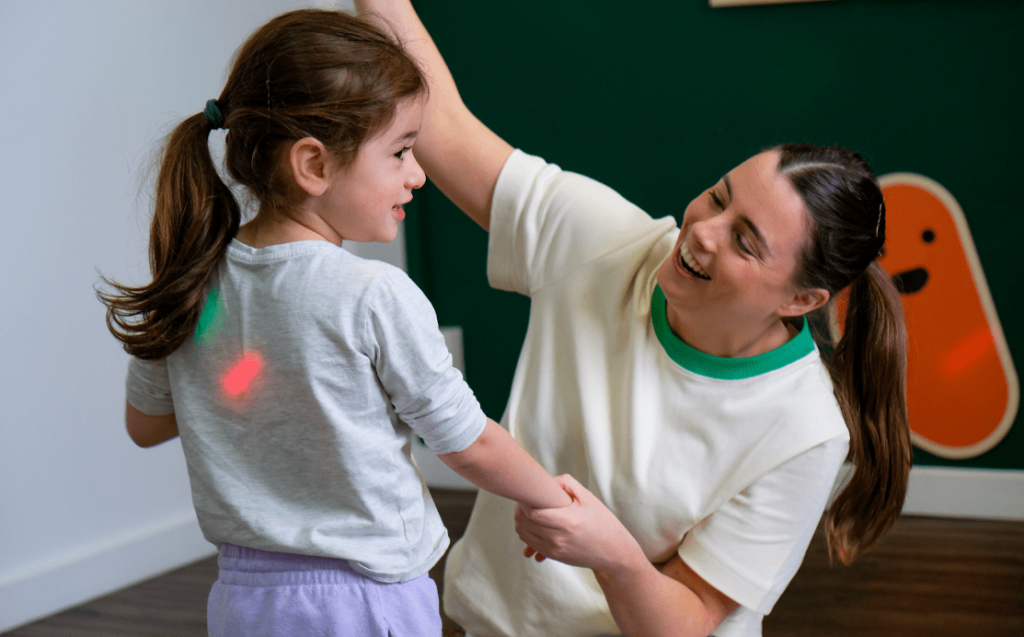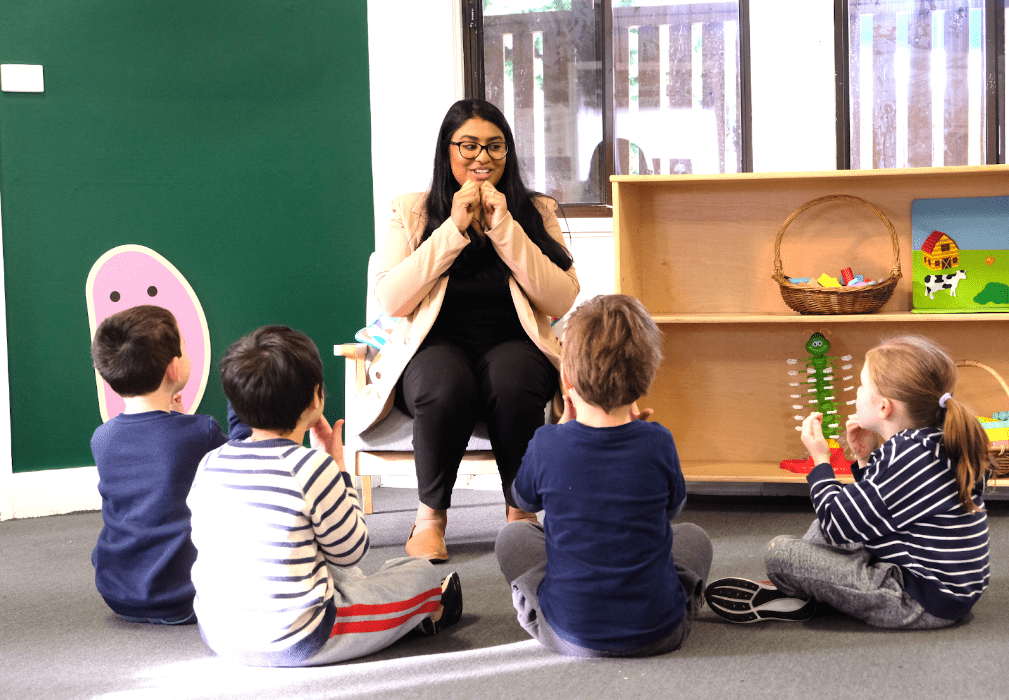Receiving an autism diagnosis for your child can be a confusing and overwhelming time. There is much to make sense of and lots of information to digest. Melissa Wall, Psychologist and Autism Partnership’s Queensland Clinical Director, explains what early intervention is, why it’s important and what quality services should look like.
What is early intervention?
Early intervention refers to therapeutic support given to young children and their families to promote the child’s best start in life. Early intervention can significantly impact a child’s ability to overcome challenges, learn new skills and make meaningful progress.
Why is it so important to start early?
The earlier the intervention, the better the chance of it making a real difference in a child and family’s life. The ideal time to begin is in the early formative years of the child’s development (e.g. from birth through preschool). Intervention at this time has been shown to enable children to maximise their skill development and set them up to be effective learners throughout the rest of their lives.
Who would benefit from early intervention?
Children who experience developmental concerns or delays can benefit from early intervention.
- Some children experience only a small number of challenges (e.g. anxiousness in crowded places or they are unsure what to say to their peers). For these children, focussed intervention, working on these 1 – 2 areas only, may be appropriate.
- However, for many young children with autism, there are usually significant delays across multiple developmental areas. In addition, parents sometimes describe challenging behaviours such as severe melt-downs, running or wandering away, high anxiety or inflexible adherence to routines that can significantly impact the child and their family’s well-being and quality of life. For those children, intensive intervention can be clinically appropriate.
What is Early Intensive Behavioural Intervention?
Early Intensive Behavioural Intervention (EIBI) is an evidence-based intervention that allows autistic children to receive lots of support early in life, using a range of techniques that come from the field of Applied Behaviour Analysis (ABA).
Within this approach, practitioners seek to understand why challenging behaviours occur and help individuals acquire meaningful skills, with the aim of improving their lives and that of their families too. For example, helping a child learn to use their words rather than hitting their head in frustration. ABA strategies and techniques can be used to help individuals learn skills across all developmental areas including, behaviour, communication and language, play, social, motor and independence.
Elements of a quality EIBI program
A quality EIBI program should involve the following:
- Learning takes place in a one-to-one or small group format at early intervention centres, at home or in the community.
- Individualised curriculum – tailored to the individual child and family’s needs.
- Comprehensive – addresses all impacted developmental areas.
- Intensive – 15-25 hours of education a week, or more if required.
- Collaboration – between a multidisciplinary team involving professionals such as Psychologists, Behaviour Consultants, Speech Pathologists, Paediatricians, Occupational Therapists and Childcare/Kindergarten Educators is essential to a comprehensive approach.
- Parental involvement – service providers should work with parents to set appropriate goals and support them to help their child to generalise their skills at home or in the community.
- Consider the child’s strengths, age and developmental level – for young children, many skills can be taught through a play-based approach.
- Structured only as needed – some children require a highly structured approach with lots of repetition to learn, whereas others are able to learn through naturalistic approaches. A quality program should be able to move between naturalistic and more structured, based on the child’s needs.
- Tailored learning environments – children can receive intervention in a specialised early intervention centre, childcare/kindergarten and community settings or at home.
- Quality – staff should have the appropriate qualifications and experience. Ongoing staff training and frequent supervision by senior professionals are also essential.
Choosing a Service Provider
Not all service providers are the same. Parents should meet with prospective organisations to understand their overall philosophy, discuss concerns and goals for their child and how the service would work with them.
Families are encouraged to seek a service provider that:
- uses an evidence-based approach
- listens to them and addresses their concerns
- communicates effectively and regularly, so parents know what and how their child’s goals are being worked on
- provides ongoing support and family skill-building so that parents are empowered and can learn skills to support their child’s development now, and as they grow older.
Melissa Wall is Autism Partnership’s Queensland Clinical Director. Autism Partnership has been supporting children and their families for over 24 years. To find out more visit www.autismpartnership.com.au or call 1300 227 981.
*Please note: The author respects each individual’s personal choice to use identify-first or person-first language to describe themselves. In this article, we use both language conventions interchangeably and will refer to both autistic children and children with autism.
This article was featured in Issue 53 of our printed magazine, Aug/Sept 2022.




